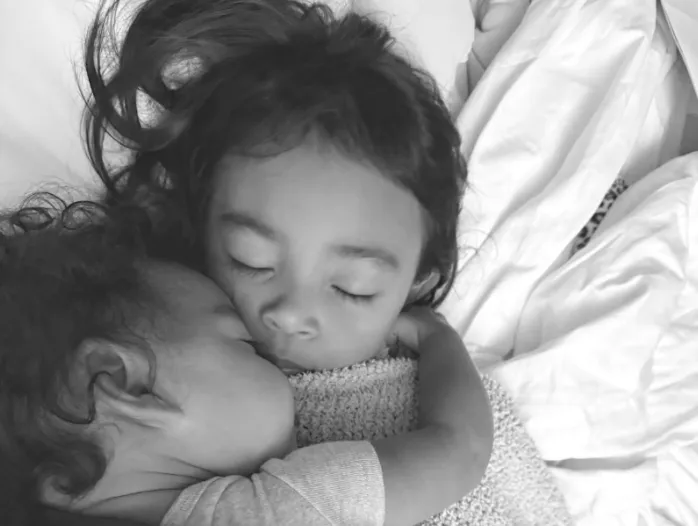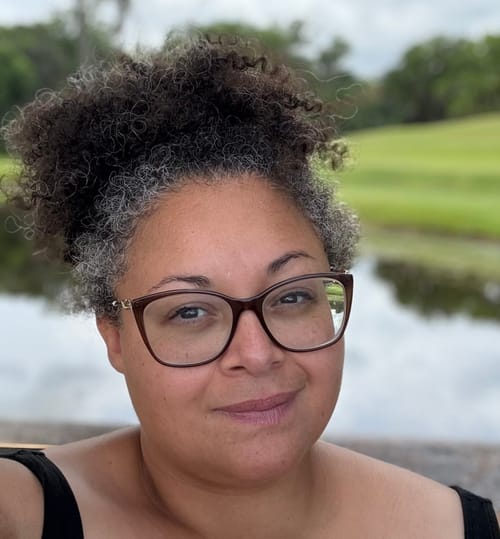My four-year-old middle child is starting TK this month, and every parent of a four- or five-year-old that I know is feeling very out of sorts. As another mom whispered to me at the park last week, “Do you think all the TK and kindergarten teachers this year know what they are in for?” Our kiddos born in 2020 and 2021 are the “pandemic babies.” They were born into a fundamentally different world than children before them, and scientific studies have shown a marked difference in their early childhood development and socialization. Many are now comparing the pandemic babies to our children of the fires—or, as we’ve similarly taken to calling them, the “fire babies.”
Babies born during both pandemics and natural disasters are collectively prone to developmental delays, behavioral and mental health difficulties, and altered brain development. The severe stress suffered by pregnant mothers during pandemics and disasters can cause a variety of ill effects on babies in utero. Importantly, research shows that there are actual genetic changes triggered in babies under severe stress, which “help to assure… immediate survival in this predicted postnatal world,although perhaps to the detriment of long-term health and well-being.” These babies are born stuck in a heightened sense of fight.
I wonder if there are lessons that I can apply to raising my youngest “fire baby,” along with all the other local babies born in 2024 and 2025, whose early development will be defined by the fire. I also wonder about the mental well-being of the many other moms like me, hit with the double whammy of raising both pandemic babies and fire babies in quick succession. If my Instagram feed is at all a representative sample, we aren’t okay.
Just as during the pandemic, fire parents are stressed to the limit again. The Eaton Fire’s toll on parents of babies and young children—particularly mothers—is unparalleled. As Stanford Associate Professor Antero Garcia uncovered in extensive interviews with mothers, the stresses of the fire for us are “largely invisible and haven’t been addressed by the media as closely as other issues like rebuilding and remediation.” The major difference this time, as opposed to during the pandemic, is that we don’t have to sit locked down with our stress—people can actually physically help. Help is the key.
If the isolation of the pandemic was a bigger detriment than the stress, then I have so much hope for our fire babies. We don’t have to recover apart this time. Evacuations and displacements are only temporary breaks in our social bonds. Unlike our pandemic recovery, our fire recovery depends upon our physical connectedness. Our fire babies—and fire moms—desperately need a village rebuilt.
The local Pasadena non-profit organization, Mama2Mama, is now that village for more than 150 local families. Founded in 2023, Mama2Mama provides intensive, culturally-informed, personalized fire relief efforts and has become the model village for the Eaton Fire’s pregnant and postpartum moms.
Built upon true “fourth trimester” support and care and working with more than 80 midwives, doulas, and lactation specialists, Mama2Mama has rebuilt meaningful, intimate personal support networks for families by establishing additional programs across four core areas:
- Practical support such as diapers, formula, meals, postpartum essentials
- Community building such as mental health healing circles and creating peer communities
- Integrated care through partnerships with family service and mental health organizations to provide expanded access
- Cash assistance like their wildfire cash aid program, which puts cash into the hands of families most impacted by the wildfires
According to Executive Director Rachel Scandling, Mama2Mama is designed at its core to promote connectedness. “Understanding that postpartum is already an isolating time for new parents helps inform our approach,” she stressed. “Our work addresses real needs: access to essentials, spaces that accommodate parents in all stages, and ongoing connection during vulnerable times.” Importantly, Rachel underscored, “we deliver care that is practical, emotional, and systemic, offering postpartum families what they need, when and where they need it.”
“In the aftermath of a natural disaster,” Rachel added, “the stress is insurmountable.” The postpartum year is extremely difficult and isolating for all families, but in periods of extreme stress such as the pandemic and Eaton Fire, these difficulties are even more pronounced. “Postpartum is a tender time of need,” Rachel said. “The uncertainty of birth and postpartum is already a stressful time; not knowing when to return to a smoke-damaged home, what new school older kids might be attending, or how to make ends meet with a longer commute and new rental expenses adds exponential stress.”
Rachel notes that Mama2Mama continues to adapt how they deliver warm, comprehensive support for fire-affected families. “While there has been significant progress in supporting families in the midst of the wildfires, the harsh reality remains:
- Mothers are still unhoused
- Families face unemployment or precarious work situations
- Parents endure longer, more expensive commutes for their children to have school
- Pregnant and postpartum women struggle to cover basic necessities AND medical bills”
“Feeling like you are not alone is key to building support,” Rachel stressed, a concept that is also a clear takeaway from the Stanford research report’s recommendation of “foster[ing] networks of local care” for mothers.
“We need disaster responses that treat caregiving as central infrastructure,” said the Stanford research report’s author, Professor Garcia. While his report strictly discusses the Eaton Fire, the recommendation could have applied to the pandemic as well. The pandemic response centered the immediate survival needs of those most vulnerable to the coronavirus, but we have learned from the long-term developmental effects on pandemic babies that greater attention needs to be paid to mothers and babies in current and future disasters.
This lesson is key for anyone seeking to help the fire babies— recovery means building villages that center mothers and babies. Connection, socialization, and personal support can prevent the negative impacts seen in the pandemic babies. Many new parents are still scared to expose their babies to the deleterious environmental effects of the fire—we must prioritize and facilitate safe social settings so that fire babies and moms don’t have to live a more isolated life again. Following the recent alarming study published in JAMA on excess deaths attributed to the fires, there is enormous worry among mothers again that it is not safe for their babies. “It feels like the pandemic again” is a familiar refrain.
It certainly may feel like the pandemic again in terms of the maternal stress, sustained respiratory health and environmental impact fears, and continued masking in the hazardous burn zone, but our fire babies don’t have to share the same story as the pandemic babies. When more organizations help the community adopt mother- and baby-forward wraparound care models like Mama2Mama, we can build new villages of care that can help write a new developmental success story for our most vulnerable. We can—and must—all help center and uplift the fire babies.
Disclaimer: The content shared in our blog is for informational purposes only and should not be considered legal, medical, or financial advice. Please consult with a qualified professional for guidance specific to your situation.

